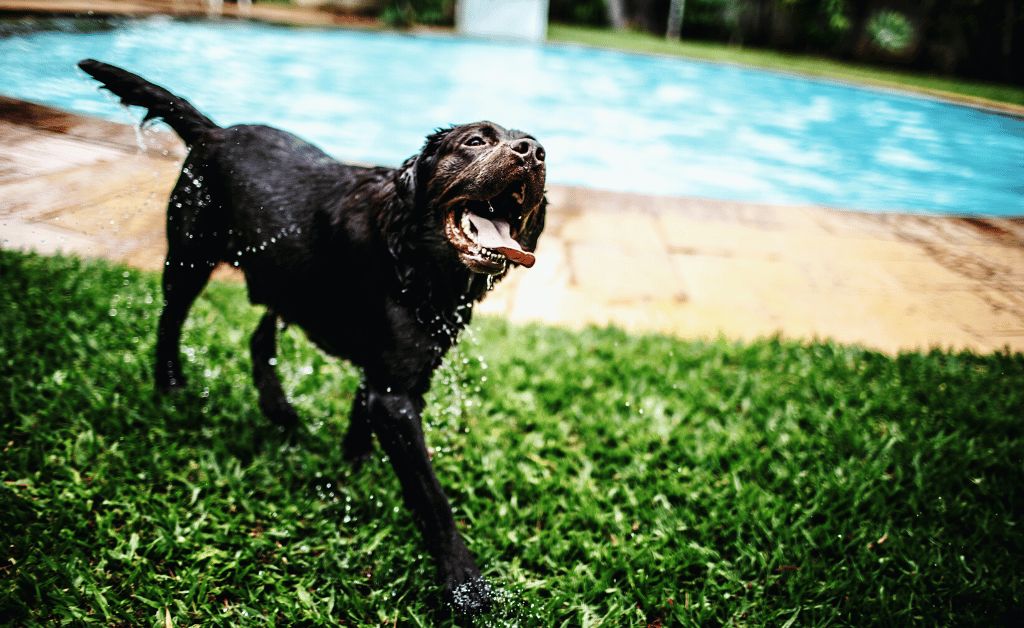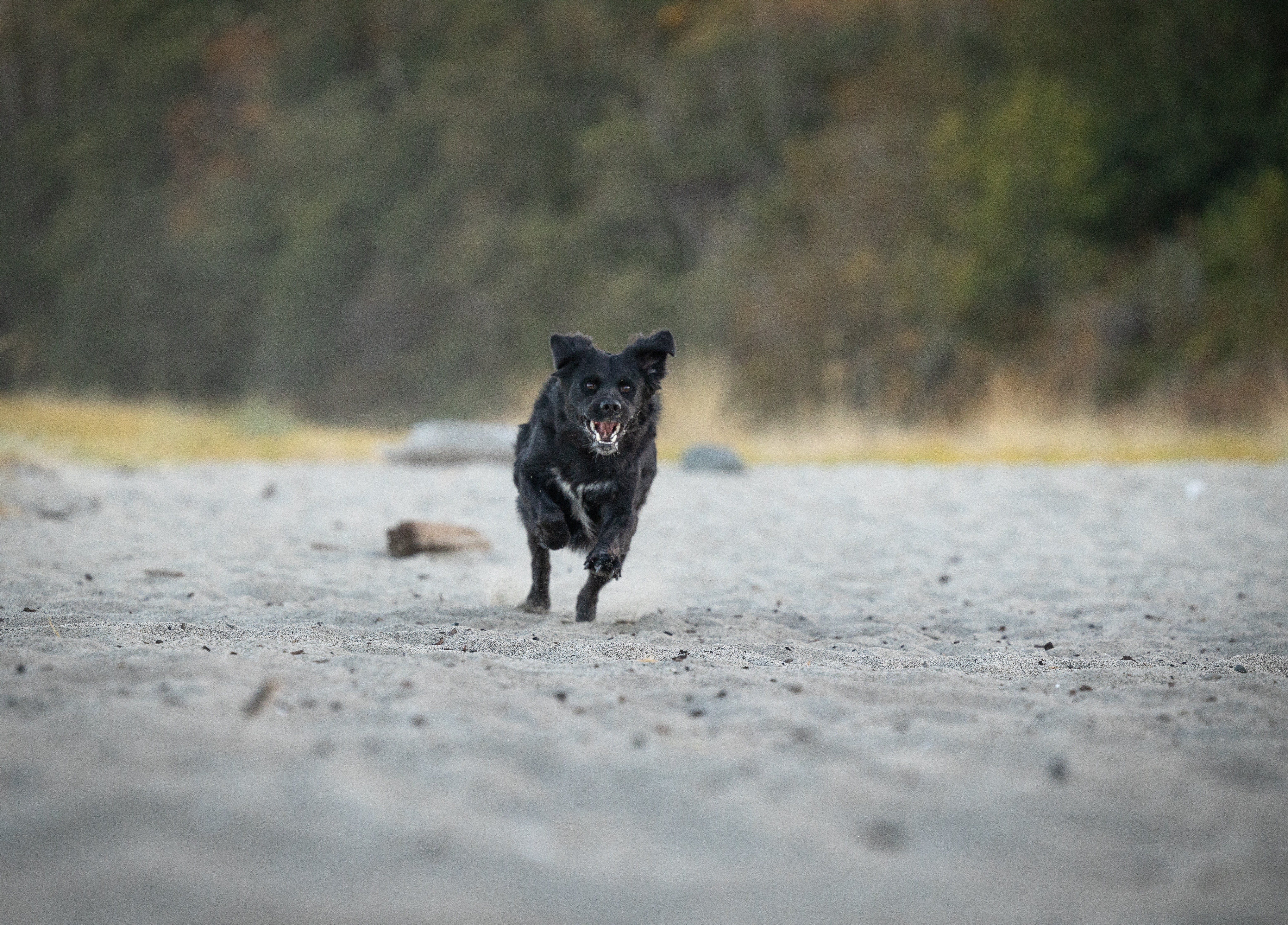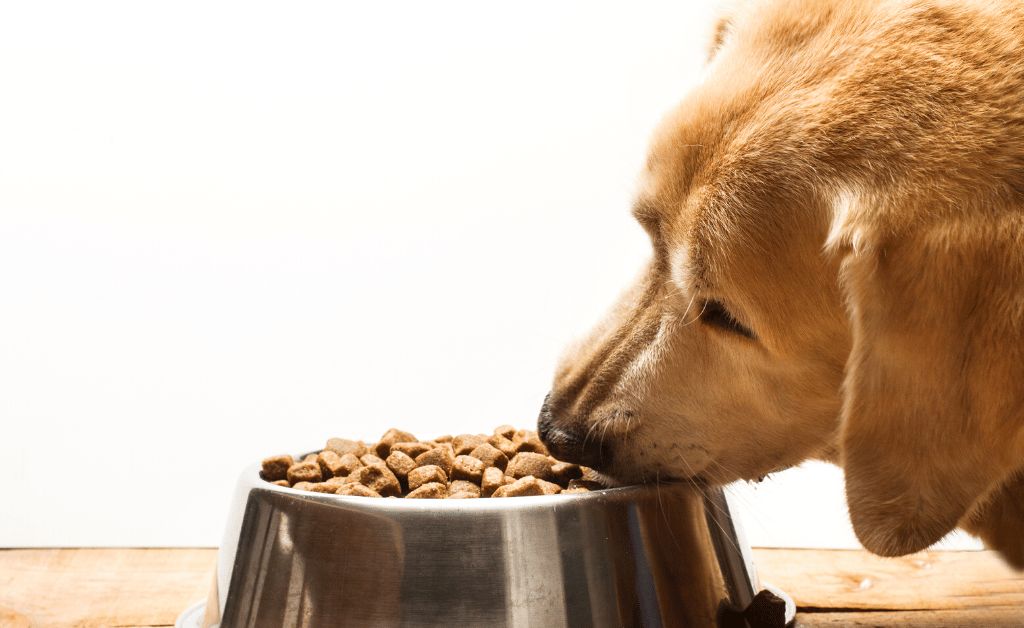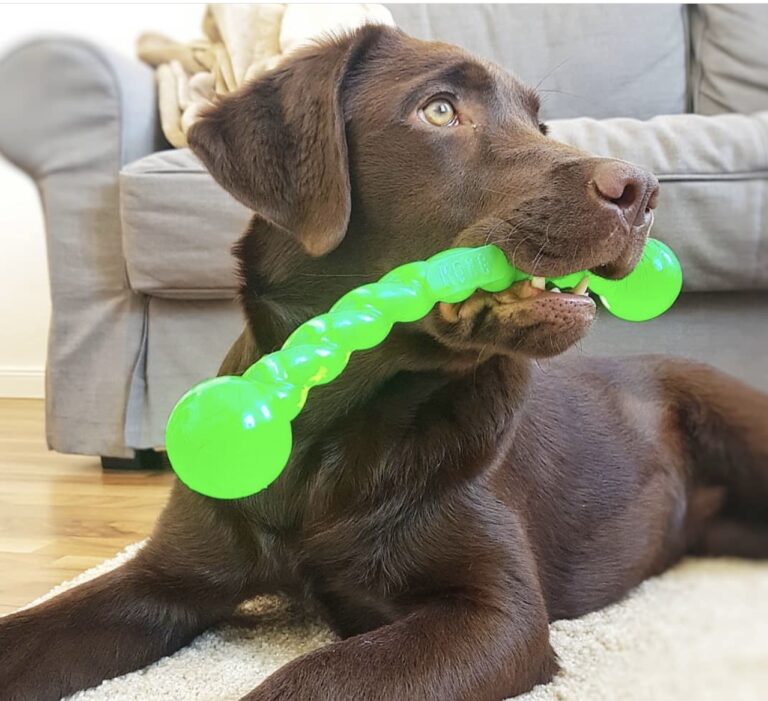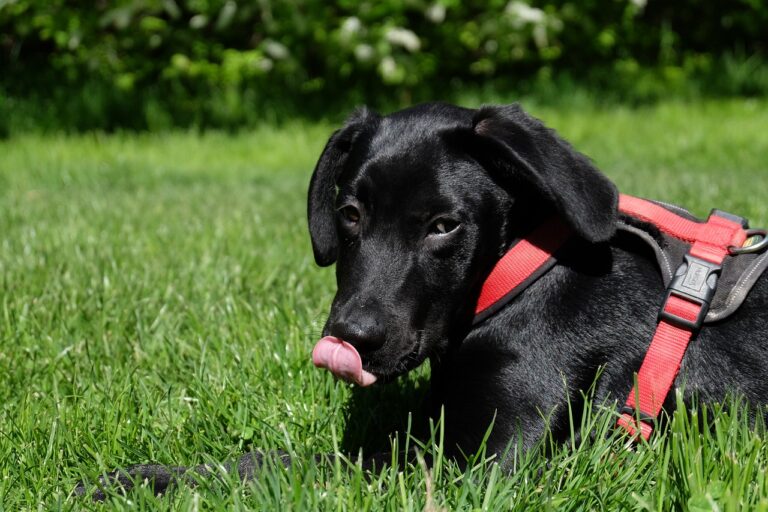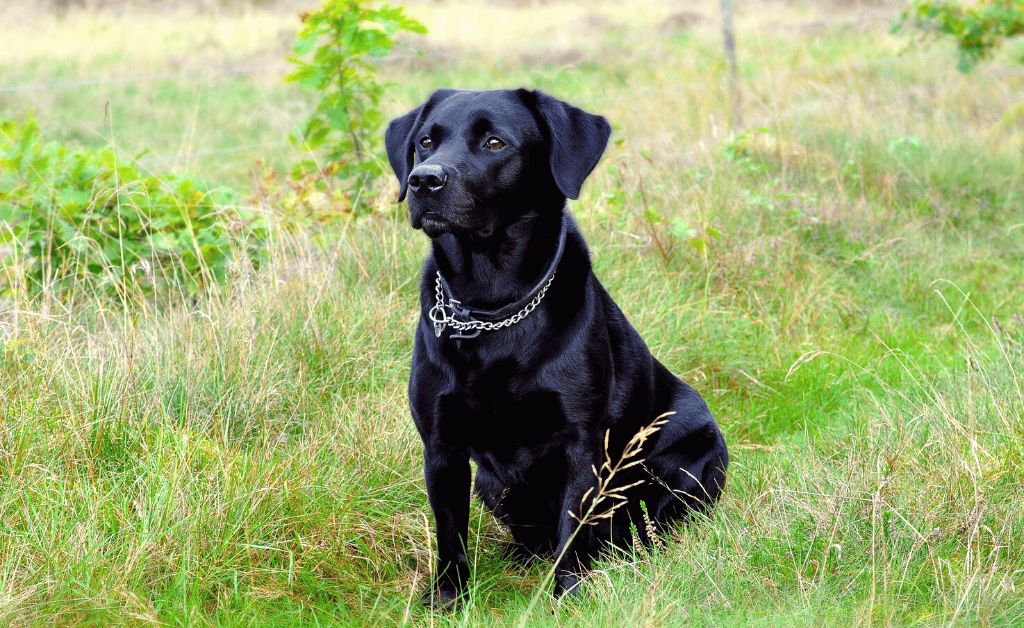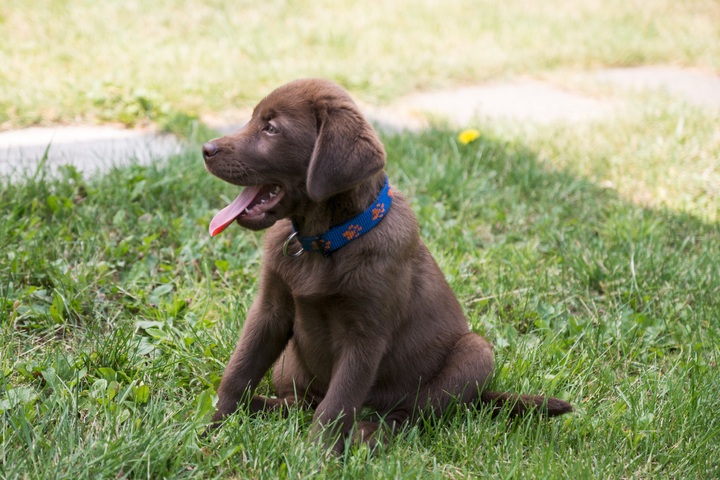Why Is My Labrador So Hyper?
Have you noticed your Labrador acting more hyper than normal? Do you find yourself asking why my Labrador is so hyper? It could be due to various factors, including their breed characteristics, diet, and environment.
Labradors are known for their high energy levels and friendly dispositions. This makes them an ideal breed for families, as they are eager to please and highly adaptable. However, these same traits can also cause Labradors to become hyper and overly active if left unchecked.
If you’re wondering why your Labrador is so hyper, this article will help you understand the potential causes and solutions.
Common Reasons for Hyperactivity in Labradors
Here are some of the most common causes of hyperactivity in Labradors and the circumstances under which they are most likely to be at play in your dog’s behavior.
🐶 Boredom
The Labrador retriever is a highly bright dog, and like many intellectual creatures, he can get into trouble if he isn’t mentally stimulated. Your Lab’s hyperactivity could lead to destructive behavior, such as chew toy or destroying shoes, clothing, books, furniture, and toys.
When a Lab is particularly energetic, it may trash its own dog supplies, including its bed, crate, and toys, with a psychotic ferocity. Having fun playing with their toys is natural for your Lab, but a hyperactive Lab may go overboard and cause damage.
When labs are left at home alone all day or don’t get enough attention from their owners, they might develop behavioral problems like boredom, destruction, and hyperactivity.
🐶 Lack of Exercise
Lack of sufficient physical activity and exercise is the primary cause of hyperactive behavior in your Labrador.
Labs, a high-energy breed of dog, require extensive daily exercise to suit their physical needs. Labradors are high-energy dogs who need regular walks or games of fetch and retrieving to wear them out.
It’s important to keep your Lab active and engaged with games and walks. Depending on your Lab’s age and health, you should take it for at least two 15-minute walks every day or play multiple games of fetch to wear it out.
The exercise requirements of a Lab can vary depending on its age. Ask your vet for their suggestion on how much activity is appropriate for your dog’s health.
🐶 Dietary Issues
The amount and type of dog food given to your Labrador can also influence his energy levels and hyperactivity. If a Lab doesn’t receive enough calories or an adequate supply of essential nutrients, he may start showing signs of increased energy.
Meal times are important to a Lab’s psychological well-being and physical health because the right combination of proteins and carbohydrates can help maintain his energy level.
It’s important to discuss your Lab’s diet with your vet. An ideal diet for a Labrador should include lean meats and complex carbs, such as oats and potatoes. Avoid giving him processed foods high in fat or sugar, as these can cause digestive issues and further exacerbate hyperactivity.
🐶 Fear and Anxiety
Fear and anxiety can be other factors in your Labrador’s hyperactivity. If he has experienced anything traumatic, like being attacked by another animal or feeling threatened in any way, it can cause him to become more anxious and agitated.
When faced with a stressful scenario or their surroundings overstimulate them, dogs will occasionally react with excessive energy. This can be a very scary situation for dogs that aren’t accustomed to or have had negative experiences with loud noises, such as explosions, sirens, loud music, storms, or the barking of other dogs.
If you adopted your Lab from a shelter, the fear of abandonment could also be a factor. Anxiety can manifest itself in the form of hyperactivity and destructive behavior, so it’s important to make sure he feels safe and secure in his environment.
🐶 Temperament and Training Problems
Although Labradors are known for having a pleasant, outgoing disposition, individual dogs, even those born to the same mother, can have vastly diverse personalities.
Some dogs are “wired” to have inherited varying degrees of energy and activity from their canine parents, which is reflected in their temperament and behavior. Since your new Lab’s personality will profoundly affect your life, we advise you to take your time in making your selection.
Carefully consider the breeder’s reputation and the characteristics of the parents before deciding on a Labrador puppy from them.
Unlike appearance, which tends to age with the person, temperament is inherited. A Lab puppy at six months of age can be more subdued and calm than another Lab of the same breed at five years of age.
This is why, year after year, the same breeders supply the canine partners for agencies that train therapy dogs, arson detection canines, and explosives sniffing canines.
These breeders have a reputation for producing dogs with mild manners and composure that are essential in a working Labrador. When not properly trained, Labs’ boundless vitality can overwhelm everyone around them. There is a clear answer to that issue, and you can begin adopting it right away.
🐶 Attention
There’s also the possibility that it’s trying to attract attention, which would explain its erratic behavior. Dogs, like humans, need attention and don’t always know the best way to get it. When Labradors don’t receive enough affection from their owners, they can become hyperactive.
Giving your Labrador plenty of exercise and playtime with you will help him feel more relaxed when he’s alone and less likely to display aggressive behavior. In addition, teaching him basic commands and rewarding positive behaviors will keep him occupied and help him constructively focus his energy.
🐶 Location
The location of the Labrador’s environment can also play a role in his level of hyperactivity. If your Lab is located in an area with a lot of stimulation and noise, this could make him more active than necessary. Try to find a quiet spot for him, such as a bedroom or designated space in the house where he can relax.
How To Deal With Hyperactive Labradors
As a dog owner, there are a few things you can do to help your hyperactive Labrador. Some of these things include:
✅ Give it exercise
If your dog breed is hyperactive because it has too much pent-up energy, engaging it in greater physical activity is the remedy. This may be difficult for you if you don’t have a yard or if your apartment or house is on the small side. Your Lab needs space to run in or frequent walks to explore the neighborhood and sniff out new scents.
Start a daily ritual of taking your Lab on a walk first thing in the morning and last thing at night to help him burn off some of his boundless energy. Take your Lab outside for short sessions of fetch multiple times a day if you have a gated yard.
Playing fetch for as little as five minutes will help tire out your Labrador, use some surplus energy, and reduce its hyperactive behavior. If you don’t have a fenced yard or adequate outdoor space near your home, look for a dog park in the area.
You should consider taking your Lab to a doggie daycare facility at least once or twice a week if you are gone all day for work and they do not receive enough exercise. After a full or even partial day of play at doggie daycare, your Lab may be so exhausted that they sleep for several days upon return home.
✅ Change the Environment
Sometimes, the environment can be too stimulating and make your Labrador too excited. If this is the case, try changing the environment of his living area. Make sure he has access to a comfortable bed or blanket to relax away from other animals or children in the house.
In addition, if you are not at home during the day, try setting up a playpen or gated area for your Lab. This will provide him with his own space and help minimize the stimulation he receives from other animals in the house.
✅ Reduce Stress
Stress can manifest itself as hyperactivity for dogs. If you think your Labrador is feeling stressed out, take a step back and evaluate its environment. Try to reduce any sources of stress that may be causing it to act out.
Also, ensure your Lab has regular playtime with other animals or humans to help him stay mentally stimulated. If there are other animals in the house, ensure they are getting along well and that there is no animosity or competition between them.
✅ Don’t Reward the Behavior
It’s important to remember that rewarding your Lab for his hyperactive behavior will only reinforce it. Try to remain calm and not give your Labrador any attention when he displays this type of bad behavior, as this may encourage him further.
Instead, reward him for good behaviors such as sitting or staying calm in a specific area. Make sure to provide your Lab with plenty of toys and activities to help keep him entertained.
✅ Keep it Occupied
Keeping your Labrador occupied is key to managing his hyperactivity. Make sure he has plenty of toys and activities to help keep him entertained throughout the day.
Try providing food-dispensing toys or treat puzzles that require him to work for his food, as this will help tire him out mentally. You can also use interactive feeding mats to help keep your Lab engaged. Additionally, provide puzzle toys such as Kongs that are stuffed with treats or kibble and require him to work for his food.
These activities can help keep your Labrador busy and distracted from any hyperactive behaviors he may be exhibiting.
✅ Dog Training
Training your Lab is another way to reduce and manage his hyperactive behavior. Working with a professional dog trainer can help you set up an effective training program that meets your Labrador’s needs. Training helps reinforce dogs behavior and create new ones while providing mental stimulation for your Lab.
If needed, consider enrolling in an obedience class to help teach your Labrador basic commands and learn how to respond appropriately in certain situations.
Frequently Asked Questions
Q: Do a golden retriever and border collie mix make a hyper dog?
A: It depends on the individual dog. Both breeds are intelligent and active, but each dog has its temperament. Some may be more active than others and require more physical and mental stimulation to stay happy and healthy. It is important to provide your pup with plenty of exercise, activities, and training to help keep it entertained and reduce hyperactive behavior.
Q: What does a hyper dog look like?
A: A hyper dog typically has difficulty calming down and staying focused. Signs of a hyperactive dog include excessive barking, jumping, running in circles, panting or drooling heavily, and being overly excitable. It may also be destructive or difficult to handle. Suppose you notice any of these behaviors in your pup. In that case, it’s important to work on providing him with more mental and physical stimulation as well as training to help reduce the hyperactive behavior.
Q: Does a hyperactive dog need more exercise?
A: Yes, physical activity can help reduce hyperactivity in dogs. Exercise helps tire them out both physically and mentally, which can help reduce any unwanted behaviors such as excessive barking or jumping. Be sure to provide your pup with plenty of activities and exercise to keep him entertained and help manage his hyperactivity.
Q: Is a Labrador retriever a working dog?
A: Yes. Labradors are bred as working dogs and have an innate drive to work. While they are not necessarily considered a “herding” breed, they enjoy problem-solving and mental stimulation activities.
Q: Does dog health affect hyperactivity?
A: Yes, poor health can contribute to hyperactivity in dogs. Medical issues such as skin allergies or ear infections can cause discomfort and anxiety, leading to excessive barking, running in circles, or other problem behaviors. Be sure to have your pup regularly checked by a veterinarian to ensure he is healthy and happy.
Final Words
Managing a hyperactive Lab can be challenging, but it is possible with the right tools and techniques. Make sure to provide your Labrador with plenty of mental and physical stimulation, such as toys, activities, and training. Additionally, make sure he gets regular vet check-ups to ensure his health is in optimal condition. With a little patience and dedication, you can help reduce his hyperactive behavior and create a more peaceful environment for you and your pup.

